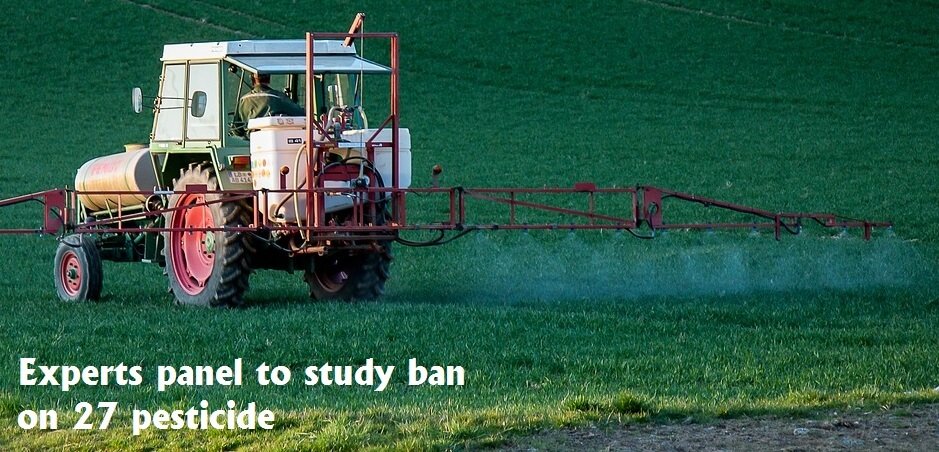An Experts panel has been named by the government to study and review the objections of the industry to the proposed ban on 27 commonly used pesticides that officials believe are harmful to animals and humans.
It is likely that the committee, headed by Chairman TP Rajendran, former Assistant Director General of ICAR, will submit its report within three months. His study will determine the fate of the 27 pesticides the government wants to ban,’ said a senior official from the Ministry of Agriculture, who did not want to be named.
Also Read: Pesticides and Agrochemical producers have sought a reduction in the GST
These were all part of the 66 pesticides in question that are being tested for potential toxicity. In 2018, 18 of them were already banned by the government.
The government said in May 2020 that it will ban these pesticides. Initially, the government gave 45 days to sector and pesticide firms to respond to the proposal. The deadline was subsequently extended to 90 days from the date of notification following the intervention of Agriculture Minister Narendra Singh Tomar. But even after 90 days, the issue remained pending but now a decision is likely to be made after the review of the expert panel.
Industry and corporations are said to have strongly defended 23 of these 27 pesticides, which are commonly used and some of which have recently been used to destroy locusts, by submitting scientific evidence.
Also Read: Unseasonal rainfall has increased the burden of the Karnataka coffee growers
We have no opposition if four pesticides are banned-methomyl, butachlor, dicofol and dinocap. But we firmly support the use of the remaining 23 pesticides,’ said Harish Mehta, the senior advisor at an industry association, the ‘Crop Care Federation of India‘.
‘All these pesticides are extremely effective. We ship pesticides worth Rs 23,000 crore to many countries, including the US, and 40 % of them are these 27 pesticides. We don’t think it’s dangerous enough to be banned,’ Mehta said.
Also Read: Dairy industry requested zero tax on Butter, Ghee and Paneer
The producers of pesticides also fear that the ban could hand over a ready export market to Chinese companies that compete directly in this sector with Indian firms.
In addition, the ban would impose an extra financial burden on farmers as the cost of these controversial pesticides ranges from Rs 275-450 per litre to the cost of their imported alternatives at Rs 1500-2000 per litre.


















Add Comment